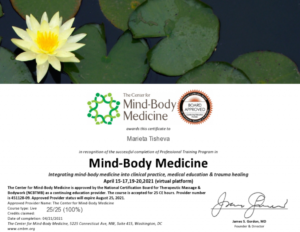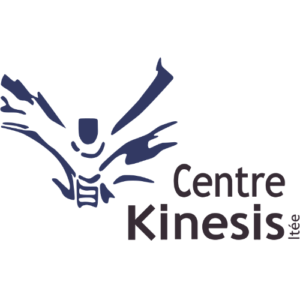Life is not a calm river
Life is not a calm river
I venture here for the first time with the humble intention of sharing my personal observations and experiences related to emotions, stress and muscle tension.
For more than a year, our basic needs for safety, belonging and physical contact have been put to the test. We live in isolation, we work and study remotely, we are limited in our choice of activities. One in three people in my office say they are stressed, tired, anxious, have insomnia.
Stress when it is well lived does not cause any problem, it is even necessary for the survival of the species. It is the body's ability to mobilize and deal with danger. I have the image of the gazelle being chased by the predator in the savannah. If she doesn't mobilize all her energy, there won't be two possible scenarios...
The human species is the same. Once the stressful situation has passed, one should be able to self-regulate and return to normal. It is a stress well experienced and well managed.
On the other hand, when the stressful situation persists over time, or the agent or the stressor is too intense, we find ourselves in a state of prolonged fight or flight alert.
This state of alert triggers multiple physiological reactions including the production of neurotransmitters and energizing hormones (epinephrines and corticosteroids) secreted by the adrenal glands. When the level of these hormones in the blood is high, serotonin and dopamine (the hormone of well-being and relaxation) are inhibited. The parasympathetic nervous system responsible for digestion and relaxation no longer functions properly. This leads to several health problems: insomnia, poor digestion, muscle cramps and tension, fatigue, weakened immune system and, in more severe cases, exhaustion and depression. !
As a massage therapist, I focus on the muscular tensions of my clients. What I've been noticing lately is that no matter how often you visit, the muscle tension comes back if the emotional stress isn't resolved. Blocked or badly experienced emotions have the power to turn into muscle tension.
What good is voltage?!
We contract to avoid feeling physical discomfort or pain, but also to avoid feeling an emotion. Muscular e$ort is then a means of pushing back the emotion of consciousness and decreasing the intensity. At other times, it serves to push back or partially hold back the expression of that emotion. For example the expression of anger. It is with the body and not with the spirit that I will contain it. We contract, back, neck, jaw .. We end up with a nice headache. Tension also builds in an insidious way if we are not aware of it.
What to do with tension?!
Relieving tension through manual therapy is fine, but the first thing to do is release the emotion that is being controlled. How? I want to say with deep breathing, making myself receptive to the feeling in full awareness of what I need to control or block. It sounds simple, but in reality we are not so open to the idea of opening up to painful emotions. Good will is not enough. !
I share with you my toolbox for stress management:
-Deep breathing exercises, mediation, yoga
– Management of nutritional stress with a naturopath or nutritionist as needed!
– Acupuncture and manual therapies. At Kinesis, we have excellent therapists
– Exercise of min 30 — 45#min per day at high intensity, outdoor outings!
Good stress management and looking forward to seeing you!
Marieta Tisheva
Massage therapist




